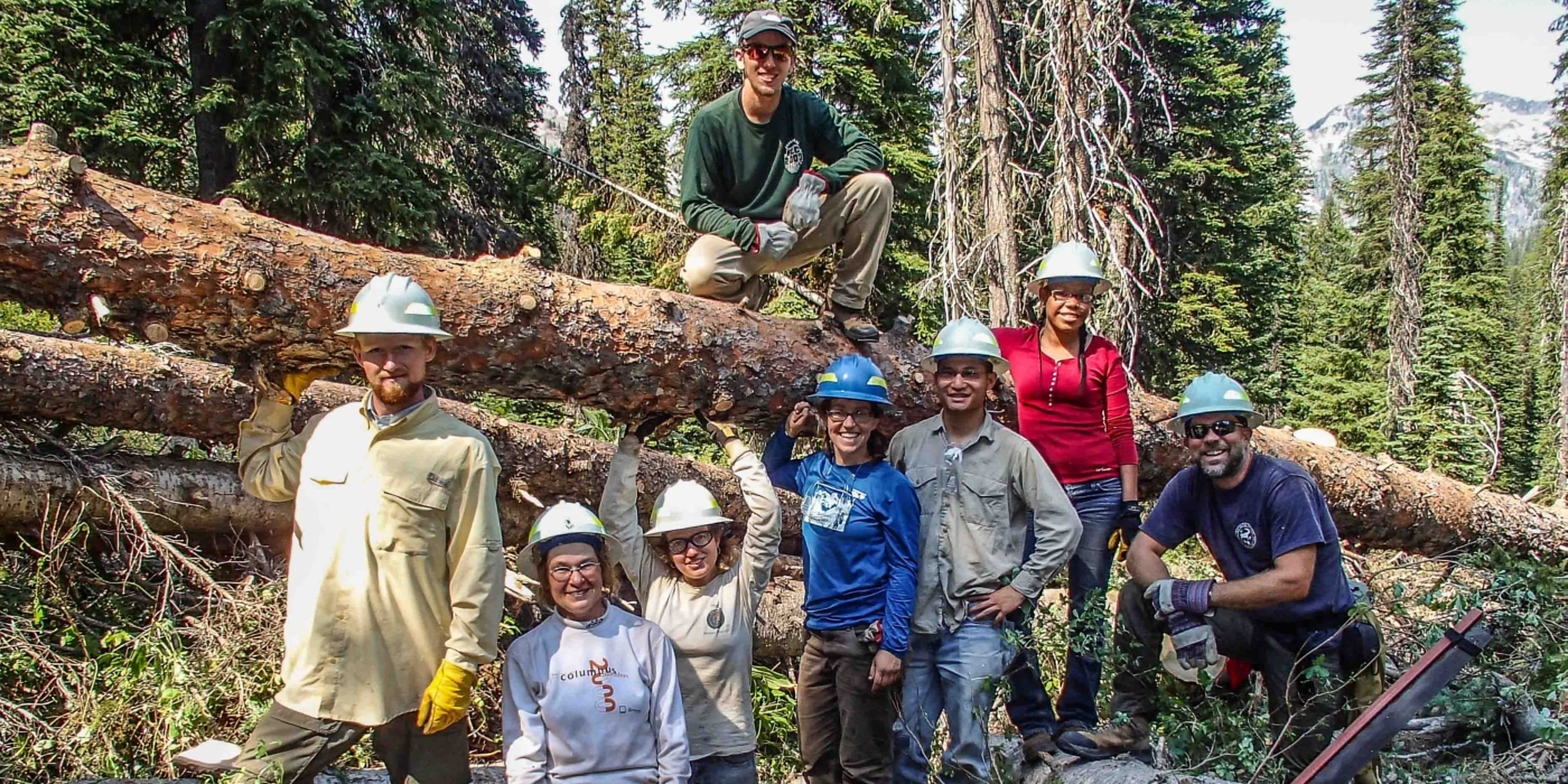As the Fourth of July approaches, millions of people are preparing to travel to our national parks for a weekend of recreation and relaxation. National parks have served as the backdrop for family fun and exploration for over a hundred years (though the conversation about the ugly history of their creation and the ongoing effects on Native communities is just beginning). However, such enjoyment is in jeopardy as our national parks and public lands face a future of uncertainty.
Over the years, aging infrastructure and increased visitation have created a need for maintenance projects to preserve the history and beauty of public lands for all to enjoy. Government agencies like the United States Forest Service and the National Park Service are responsible for addressing this wear and tear, but a lack of funding has caused it to fall by the wayside. Facing over $19 billion in backlogged maintenance, federal agencies and local communities alike are desperate for solutions and are turning to Congress for answers.
Historically, preservation of public lands, forests and parks has been considered a priority for both progressives and conservatives -- with bipartisan support for funding of the National Park Service, Forest Service, and other government agencies. In 2011, however, Congress flipped and partisan agendas began to overshadow this consensus -- leaving our parks facing worsening conditions. As the budget for maintenance has shrunk significantly, Congress is looking at a mounting problem that can no longer be ignored,
Sierra Club service outing in Denali National Park. Photo by: John Kolman
In light of worsening conditions, the Senate Committee on Energy and Natural Resources held a hearing to address the mounting backlog and to brainstorm possible solutions. One by one, panelists shared their ideas for garnering funds to allocate to public lands maintenance while fielding questions from committee members. Among the proposed solutions were disposing of certain lands altogether, charging for Wi-Fi in RV parks, and expanding volunteer presence in national parks. Another offering, earning support from Sen. Angus King (R-ME), was a philanthropy incentive program that would match each private dollar with a public dollar to encourage donation. Sen. Bill Cassidy (R-LA) shared his own "eccentric" ideas, calling for increased enforcement in our national parks as he warned of the dangers of school children scheming to enter without payment.
As the hearing unfolded, it became clear that most of the proposed solutions to this deferred maintenance would be insufficient. Relying on philanthropy and volunteers to fund and maintain public lands is a nice idea, but is unequal to the scale of the challenge. Taxing fuel and cracking down on permits may yield some revenue, but the $19.4 billion needed to rectify backlogged maintenance on top of the $100 million per year for regularly scheduled maintenance calls for more serious measures.
Alternatively, the committee saw widespread support for S.500, the Restore Our Parks Act, sponsored by Sen. Rob Portman (R-OH). This legislation would establish and fund a National Park Service Legacy Restoration Fund aimed at providing federal funding for maintenance and construction projects. Rather than scrambling for a dollar here and a dollar there, this fund would provide the resources to tackle a growing backlog and help to manage our public lands. Finally, a solution that makes sense.
The magnitude of the situation demands swift and robust allocation of government funds to preserve the integrity of the public lands we cherish. Congress should fully fund the National Park System and efforts to protect public lands, and the Restore Parks Act is a legitimate step in that direction.As families head into the outdoors for the long weekend, they’re depending on the federal government to provide a clean and functioning visitor experience for all to enjoy.
